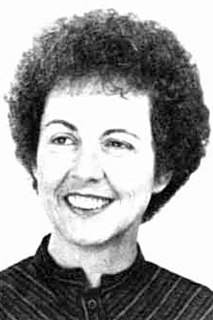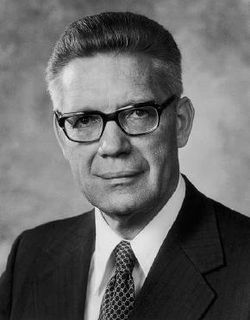Цитата Сони Джонсон
Я все еще чувствую себя мормоном. Эти люди в Солт-Лейк-Сити не могут решить, кто мормон, а кто нет.
Связанные цитаты
Я живу недалеко от Солт-Лейк-Сити, в месте под названием Каньон Эмиграции. Это на мормонской тропе. Так что я чувствую глубокую связь не только из-за моих мормонских корней, а это пять или шесть поколений, но и из-за того, где мы живем. Не проходит и дня, чтобы я не помнил о духовном суверенитете, к которому стремился мой народ, приезжая в Юту.
Ну, мы американцы. Я всегда считал, что вы работаете там, где вы есть. Я женщина-мормонка, выросшая на берегу Большого Соленого озера на американском Западе в Соединенных Штатах Америки. Но в то же время большая часть моей жизни была посвящена сопротивлению традиционным формам демократии, сопротивлению традиционным формам ортодоксальности, будь то правительство Соединенных Штатов или церковь мормонов.
Как сильно мне хотелось принадлежать, как было, когда я была молодой мормонской девушкой, быть просто работающей частью великого мормонского плана спасения, улыбающимся образцом нашего сверкающего различия. Но вместо этого я обнаружил себя упрямой женщиной-мормонкой, стремящейся к духовному выживанию в трудный момент мормонской истории.
Я думаю, что я говорила о том, что нас, женщин, выросших в мормонской традиции в Солт-Лейк-Сити, штат Юта, учили — и нас до сих пор заставляют верить — что самая важная ценность — это послушание. Но это послушание во имя религии или патриотизма в конечном итоге забирает наши души. Так что я думаю, что это более широкий вопрос о том, что приемлемо, а что нет; где мы поддерживаем послушание и закон и где мы участвуем в гражданском неповиновении - где мы можем пересечь черту физически и метафорически и сказать: «Нет, это больше не приемлемое поведение».
Хорошей аналогией [Charlie Hebdo] во многих отношениях является «Южный парк» — чрезвычайно популярное американское мультипликационное шоу — и то, что создали создатели «Южного парка», например, «Книга Мормона», бродвейский мюзикл. Если бы я был набожным мормоном, меня бы оскорбило многое из того, что происходит в «Книге Мормона», верно? Он безжалостно высмеивает притязания мормонов на истинность и притязания мормонских миссионеров на добродетель.
Спасение в его истинном и полном значении является синонимом возвышения или вечной жизни и состоит в обретении наследства на самом высоком из трех небес внутри Целестиального Царства. За немногими исключениями, это спасение, о котором говорится в Священных Писаниях. Это спасение, которого ищут святые. (Доктрина мормонов, 2-е изд., Солт-Лейк-Сити: Буккрафт, 1966, стр. 670.)
Все люди слышали о мормонской Библии, но лишь немногие, за исключением «избранных», видели ее или, по крайней мере, удосужились прочитать ее. Я привез копию из Солт-Лейк-Сити. Книга для меня диковинка, это такое претенциозное дело, и в то же время такое «медленное», такое сонное; такой пресный беспорядок вдохновения. Это хлороформ в печати. Если Джозеф Смит сочинил эту книгу, то это было чудом — во всяком случае, бодрствование, когда он это делал.

































